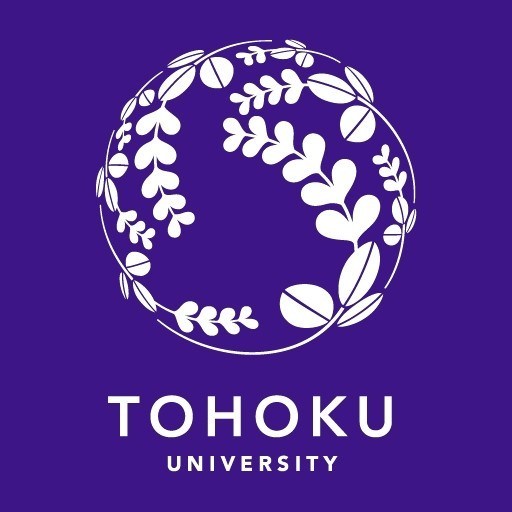Photos of university
Mechanical Engineering at the Tokyo Institute of Technology offers a comprehensive and rigorous education designed to prepare students for innovative careers in the field of mechanical systems and technologies. The program focuses on fundamental principles of mechanics, thermodynamics, materials science, and control engineering, providing students with a solid foundation to design, analyze, and improve machinery and mechanical systems. Students will have the opportunity to engage in cutting-edge research and practical projects, fostering their problem-solving skills and technical expertise. The curriculum incorporates the latest advancements in robotics, automotive engineering, manufacturing, and sustainable energy systems, ensuring that graduates are well-equipped to meet contemporary engineering challenges. Through collaboration with industry partners and participation in internships, students gain valuable real-world experience that enhances their employability. The department also emphasizes interdisciplinary approaches, encouraging students to integrate knowledge from related fields such as electrical engineering, computer science, and materials engineering. State-of-the-art laboratories and research facilities support hands-on learning and innovation. The program aims to cultivate not only technical proficiency but also leadership, communication, and teamwork abilities, which are essential for successful careers in engineering. Graduates of the Mechanical Engineering program at Tokyo Institute of Technology are recognized globally for their expertise and are prepared to contribute to advancements in manufacturing, transportation, energy, and environmental sustainability. The program's diverse academic environment and strong connections with industry ensure that students receive a well-rounded education that meets the demands of modern technology and society, positioning them for successful careers in academia, industry, or entrepreneurship worldwide.
Using the basic knowledge of mechanical engineering and related fields acquired in the Undergraduate Program as a foundation, advanced knowledge of areas such as mechanics of materials; thermodynamics and fluid mechanics; dynamics of machinery; control, robotics, and mechatronics; precision engineering; processing, production, and materials; and space engineering, as well as other fields related to mechanical engineering are selected and gained. In addition, through the Research Seminars and master's thesis research, students build on the problem-solving methods learned from the Research-Related Courses in the Undergraduate Program. By conducting their own research, they learn to become capable mechanical engineers who have their own areas of expertise.
400-level courses
|
Course |
Course |
|
MEC.J431 |
Ultra-precision Measurement |
|
MEC.D431 |
Advanced Sound and Vibration Measurement |
|
MEC.E433 |
Advanced Thermal-Fluids Measurement |
|
MEC.C432 |
Structural Integrity Assessment |
|
ENR.K440 |
Advanced course of radiation transfer |
|
MEC.E431 |
Thermodynamics of Nonequilibrium Systems |
|
MEC.E432 |
Properties of Solid Materials |
|
MEC.U432 |
Automotive Comfort Mechanics Engineering A |
|
ENR.K430 |
Advanced course of turbulent flow and control |
|
MEC.D432 |
Rotor Dynamics |
|
MEC.L432 |
Human-Centered Design |
|
MEC.U433 |
Advanced Production Engineering A |
|
MEC.U434 |
Advanced Internal Combustion Engine Engineering and Future Power Train A |
|
MEC.U435 |
Basics of Automotive Design A |
|
MEC.U441 |
Automotive Structural System Engineering B |
|
MEC.U442 |
Automotive Comfort Mechanics Engineering B |
|
MEC.U445 |
Basics of Automotive Design B |
|
MEC.U447 |
Advanced Material Science and Engineering B |
|
MEC.R432 |
Off-campus Project M2c |
|
MEC.R433 |
Off-campus Project M3c |
|
MEC.H431 |
Advanced Mechanical Elements |
|
MEC.M432 |
Practical Space Engineering Project |
|
MEC.M431 |
Space Systems Design |
|
MEC.R433 |
Off-campus Project M3c |
|
MEC.G431 |
Mechanical Processing |
|
MEC.R431 |
Off-campus Project M1c |
|
MEC.C434 |
Sciences of Structural Safety and User's Security |
|
MEC.G433 |
Joining |
|
MEC.C433 |
Solid Dynamics |
|
MEC.F431 |
Computational Thermo-Fluid Dynamics |
|
MEC.U431 |
Automotive Structural System Engineering A |
|
MEC.U443 |
Advanced Production Engineering B |
|
MEC.U444 |
Advanced Internal Combustion Engine Engineering and Future Power Train B |
|
MEC.R431 |
Off-campus Project M1c |
|
MEC.R434 |
Off-campus Project M4c |
|
MEC.C431 |
Mechanics of Composite Materials |
|
MEC.Z491 |
Seminar in Mechanical Engineering S1 |
|
MEC.H432 |
Multibody Systems |
|
MEC.R431 |
Off-campus Project M1c |
|
MEC.R432 |
Off-campus Project M2c |
|
MEC.R434 |
Off-campus Project M4c |
|
ENR.K450 |
Advanced course of combustion physics |
|
MEC.R432 |
Off-campus Project M2c |
|
MEC.R433 |
Off-campus Project M3c |
|
MEC.R434 |
Off-campus Project M4c |
|
MEC.H433 |
Mechatronics Device and Control |
|
MEC.H434 |
Advanced Course of Actuator Engineering |
|
MEC.Z492 |
Seminar in Mechanical Engineering F1 |
|
MEC.M434 |
Space Robotics |
|
MEC.R432 |
Off-campus Project M2c |
|
MEC.R434 |
Off-campus Project M4c |
|
MEC.J432 |
Mechanism and Control for Ultra-precision Motion |
|
MEC.L431 |
Human Brain Functions and Their Measurements |
|
MEC.G432 |
Metalforming |
|
MEC.M433 |
Space Systems Analysis A |
|
MEC.R431 |
Off-campus Project M1c |
|
MEC.R433 |
Off-campus Project M3c |
500-level courses
|
Course |
Course |
|
MEC.F531 |
Flying Object Engineering |
|
ENR.K530 |
Advanced course of multiscale thermal-fluid sciences |
|
MEC.F532 |
Rarefied Gas Dynamics |
|
MEC.M532 |
Space Systems and Missions |
|
MEC.M531 |
Space Systems Analysis B |
|
MEC.I531 |
Mechanical biomimetics |
|
MEC.E531 |
Plasma Physics |
|
ENR.K580 |
Leading edge energy technology |
|
MEC.C531 |
Mechanics of High Temperature Materials |
|
MEC.G531 |
Precision Manufacturing Processes |
|
MEC.S531 |
Overseas Research Project M1c |
|
MEC.M533 |
Special Topics of Advanced Space Engineering A |
|
MEC.H531 |
Robot Control System Design |
|
MEC.S532 |
Overseas Research Project M2c |
|
MEC.S533 |
Overseas Research Project M3c |
|
MEC.S534 |
Overseas Research Project M4c |
|
MEC.D531 |
Experimental Modal Analysis for Structural Dynamics |
|
MEC.J531 |
Micro and Nano Systems |
|
MEC.Z591 |
Seminar in Mechanical Engineering S2 |
|
MEC.D532 |
Silent Engineering |
|
MEC.H532 |
Kinematic Analysis and Synthesis of Robots |
|
MEC.G532 |
Taguchi Method |
|
MEC.S531 |
Overseas Research Project M1c |
|
MEC.S532 |
Overseas Research Project M2c |
|
MEC.S533 |
Overseas Research Project M3c |
|
MEC.S534 |
Overseas Research Project M4c |
|
MEC.S532 |
Overseas Research Project M2c |
|
MEC.S534 |
Overseas Research Project M4c |
|
MEC.Z592 |
Seminar in Mechanical Engineering F2 |
|
MEC.J532 |
Advanced Course of Micro and Nano Machining |
|
MEC.S531 |
Overseas Research Project M1c |
|
MEC.S532 |
Overseas Research Project M2c |
|
MEC.S533 |
Overseas Research Project M3c |
|
MEC.S534 |
Overseas Research Project M4c |
|
MEC.J533 |
Advanced Tribosystem |
|
MEC.S531 |
Overseas Research Project M1c |
|
MEC.S533 |
Overseas Research Project M3c |
Eligibility
- Persons who have successfully completed 16 years of education outside Japan or who are expected to do so by March 31, 2017.
- Persons who have graduated from a university or college in Japan.
- Persons who have successfully completed 3 years or more of education at a university or college outside Japan and obtained a degree equivalent to Bachelor's degree or who are expected to do so by March 31, 2017.
- Persons who have successfully completed 15 years of education and obtained a degree equivalent to Bachelor's degree outside Japan or who are expected to do so by March 31, 2017 and are individually assessed and recognized by the relevant School of Tokyo Institute of Technology as having outstanding academic records.
- Persons whose countries do not require 16 years of education prior to obtain a university-level education but who satisfy both of the conditions noted below and are individually assessed and recognized by the Tokyo Institute of Technology Graduate School as having academic ability equivalent to or higher than that of graduates of a Japanese university.
- Persons who have spent at least one year as a research student or research fellow at a university or research institution in or outside Japan after successfully obtaining a Bachelor's degree.
- Persons who are at least 22 years old by March 31, 2017.
Application Requirements
- Application Form (attached form: original, no photocopies)
- Field of Study and Study Program [Research Proposal] (attached form)
- Official Academic Transcripts from both undergraduate and graduate schools (originals or certified copies)
- Certificate of Graduation or Expected Graduation from both undergraduate and graduate schools (originals or certified copies). If the applicant graduated or is graduating early or has skipped a grade or year, please submit an official document or letter issued by the school indicating such fact.
- Summary of Thesis or Research (free format)
1) For applicants to the Master's program: an outline of your study or research in your undergraduate course.
2) For applicants to the Doctoral program: a summary of your thesis or, if the applicant has not written a Master's thesis, please submit a summary of the Master's program research.
[Applicants for the Doctoral Program under eligibility condition B (3) are not required to submit this.] - English Proficiency Test Score Report (original, no photocopies)
- Evaluation Sheet with Recommendation (in a single document) from a supervisor or head of department or similar official of the last university attended to verify the potential of the applicant (attached form) (original, no photocopies)
- Consent of a Tokyo Institute of Technology Faculty Member. Attach a printout of email correspondence or any other proof to verify that a Tokyo Tech faculty member has consented to be the applicant's academic supervisor during the intended period of study at Tokyo Tech.
- Applicant's Passport (one photocopy of the page or pages with the applicant's name, nationality, date of birth and photo). *A Japanese citizen must also submit one photocopy of the page or pages of his/her passport that shows visas obtained in the country where he/she lives.
- Application Fee: ¥30,000 (JPY). Applicants must pay the stated application fee by credit card within the application payment period.
Payment Period : September 1, 2016 - November 1, 2016
Scholarships
MEXT Scholarship(University Recommendation -SGU-)
Applicants with outstanding academic performance records have the chance to apply for the Japanese Government (MEXT) Scholarship. The scholarship provides a monthly stipend, \147,000 (JPY) for Master's Program students and \148,000 (JPY) for Doctoral Program students. (*This stipend is subject to change as specified by the regulations of the MEXT Scholarship program.) Traveling expenses are not provided from MEXT. This scholarship will be paid from April 2017 to March 2018 (12 months). The scholarship period can be extended under some conditions specified by MEXT. Successful MEXT Scholarship recipients are not required to pay admission or tuition fees. The number of awards is very limited.
NOTE: The applicant will be required to withdraw from the scholarship if he/she is applying to more than one program which will be supported by MEXT scholarship or he/she is applying to Japan Student Services Organization (JASSO) scholarship and MEXT scholarship simultaneously.
JASSO
Applicants who enroll in Tokyo Tech without other scholarship have the chance to apply for the "Monbukagakusho Honors Scholarship for Privately Financed International Students" from the Japan Student Services Organization (JASSO).
Please note that those who are granted any other scholarship cannot apply to receive this scholarship simultaneously. The monthly amount of this scholarship is ¥48,000 (JPY). The monthly amount is subject to change as specified by JASSO. This scholarship will be paid from April, 2017 to March, 2018 (12 months). You should pay the admission and tuition fees even if you are selected as a recipient of this scholarship.
The Department of Mechanical Engineering at Tokyo Institute of Technology offers a comprehensive undergraduate program designed to provide students with a solid foundation in the principles and practices of mechanical engineering. The curriculum emphasizes both theoretical knowledge and practical skills, preparing students for careers in industry, research, or further academic pursuits. Students are introduced to fundamental topics such as thermodynamics, fluid dynamics, material science, mechanical design, control engineering, and manufacturing processes, all of which are crucial for understanding and solving complex engineering problems.
The program promotes an active learning environment through laboratory work, project-based coursework, and internships, enabling students to apply their theoretical knowledge in real-world contexts. Specialized electives allow students to deepen their expertise in areas such as robotics, automotive engineering, energy systems, and sustainable engineering, facilitating a tailored educational experience that aligns with their interests and career goals.
Tokyo Institute of Technology’s mechanical engineering program also emphasizes innovation and research, encouraging students to participate in cutting-edge projects and collaborate with faculty on research initiatives. The department maintains strong ties with industry partners and research institutions, offering students opportunities to engage in internships and joint research projects that enhance their practical experience and employment prospects.
The faculty members are renowned experts in various fields of mechanical engineering, contributing to a dynamic academic environment that fosters creativity, critical thinking, and problem-solving skills. Students also have access to advanced laboratories and facilities equipped with modern machinery and tools essential for contemporary mechanical engineering research and development.
Upon completion of the program, graduates are well-equipped to contribute to technological advancements in sectors such as automotive, aerospace, energy, manufacturing, and robotics. Many alumni pursue careers in industry, government agencies, or continue their education through master's and doctoral programs. The program also prepares students with the skills necessary for entrepreneurial ventures and leadership roles in engineering organizations.
Overall, the Mechanical Engineering program at Tokyo Institute of Technology combines rigorous academic coursework, applied research, and industry engagement to produce versatile engineers capable of addressing the challenges of modern society through innovative mechanical solutions. The department’s international environment and collaborative atmosphere further enrich students’ educational experience, fostering global competencies essential in today’s interconnected world.










